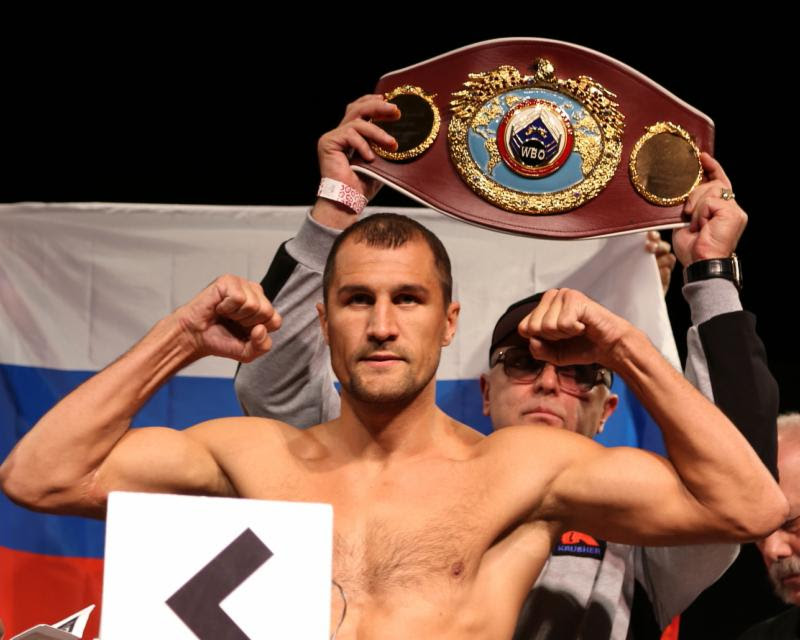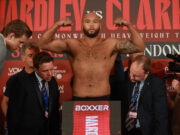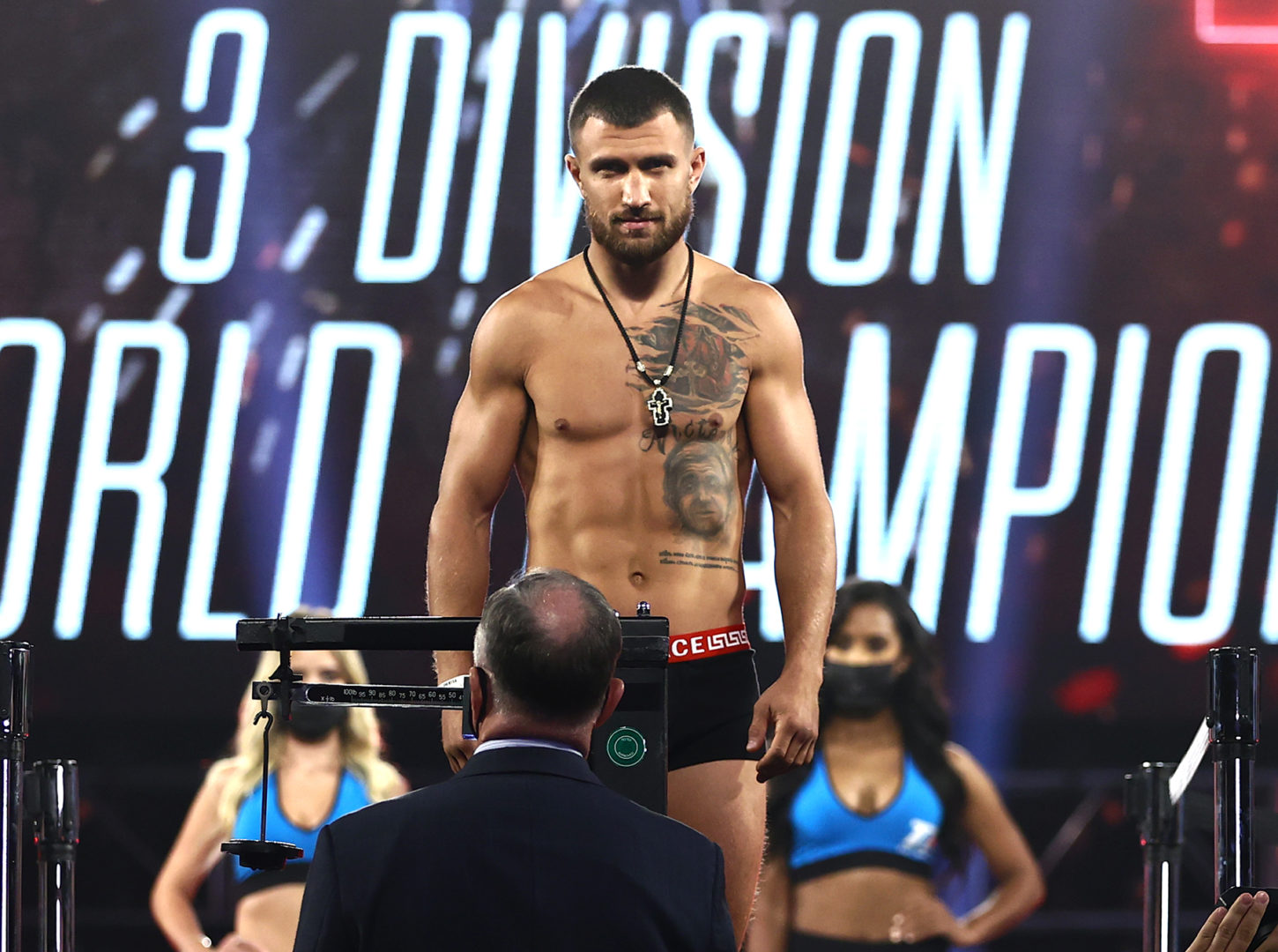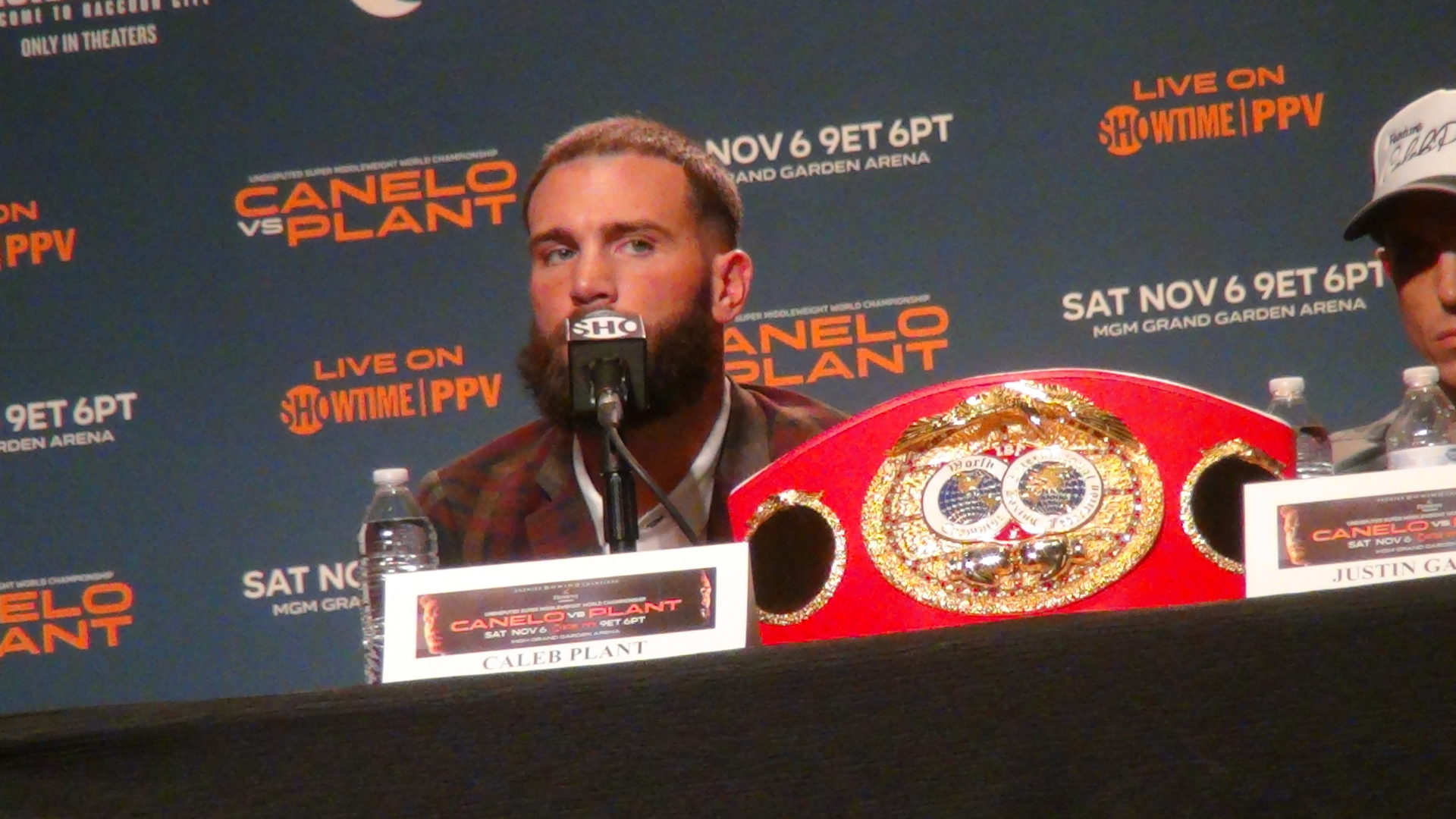By Bart Barry-

The most unexpected thing shared by guys who hit hardest is rarely how hard they hit or the speed of their attack. No, what surprises most about those guys is the nimbleness with which they take a backwards step the first three or four times you try to attack and smother them, their balletic willingness to move away from you in a tactical retreat and geometric adjustment that puts you at the end point of their punches. Where it hurts the most.
It was that willingness and ability with a backwards step or two, Saturday night in Atlantic City, that allowed Russian light heavyweight titlist Sergey “The Krusher” Kovalev to toss a shutout at American titlist Bernard “The Alien” Hopkins, in a unification match official scorekeepers had 120-106, 120-107 and 120-107.
Kovalev-Hopkins was, is, our sport’s fight of the year. Not its best fight, no, much nearer its worst, in fact, but the fight that best represented the state of our sport in 2014, the year a man nearing his 50th birthday challenged and imperiled himself more than any of our standard bearers in their primes. Sergey Kovalev, an elite-level fighter, was unable to knock-out Bernard Hopkins, despite trying to do so sporadically in the fight and sustainedly in its closing minutes. Hopkins is extraordinary, yes, but any path to alien extraordinariness is eased when one’s era is so fantastically ordinary.
There is a heaviness and a dullness, an ache more than a pang, about treating Saturday’s light heavyweight unification match. Postfight, the highest tribute paid its winner, a 31-year-old known as “Krusher,” was that he was disciplined in his pursuit of a 49-year-old man, that he did not do anything rash like throw a hundred punches every round or run his fellow titlist into retirement, that he demonstrated prudence in becoming the unified world champion of a storied division. So it goes this year: Prudence against a man Hopkins’ age is a blazon of excellence.
Is that revisionist? Yes, but only slightly. There was a healthy percentage of knowledgeable boxing folks, myself included, who thought Hopkins might beat Kovalev, when Saturday’s opening bell rang. But those ideas disappeared, went wanting in full, fewer than 60 seconds later. Following something like the strategy he followed against Kelly Pavlik, flying at a younger man with an unexpected aggressiveness he expected to have a disruptive effect, Hopkins wheeled and crossed-over, trying to hit Kovalev on his second or third step. But Kovalev was three steps out of Hopkins’ range before Hopkins’ back foot completed its odyssey to front. Hopkins moved – in Larry Merchant’s memorable phrase – like a man “in amber.”
It was a moment of instant sadness. That quickly, the air became full of worry those viewing the match were about to see a man well past his physical prime assaulted to unconsciousness or worse by someone 18 years his junior. Nearly worse still was the possibility a man so exaggeratedly beyond his physical prime might somehow become a unified world champion, through force of wiles, yes, but even more through opponent incompetence.
“I feel bad for watching this, jeez” – that was the first comment I heard after the opening bell, Saturday, in a roomful of knowledgeable boxing people, the majority of whom still attend boxing gyms regularly, and it was said by an astute observer who gave Hopkins a chance to win the match only a minute before.
It was that sort of start for Hopkins. He got dropped by a counter righthand thrown by Kovalev as the Russian hopped backwards in round 1. Hopkins rose and looked at the canvas, a tick of embarrassment more than a try at fooling referee David Fields, a man unknown to viewers as what three judges got assigned to the main event, and concluded the round, and the round after that, with a look that was more frightened than concentrated or studious.
Under John David Jackson’s tutelage, Kovalev took Hopkins’ strategy away from him, by quickly giving Hopkins a thought he’d not seriously had before – I could get hurt very badly tonight – and then using that disruption to keep Hopkins from ever executing anything the way he wished to. There were 10 or 15 seconds, in a fight comprising 2,160 of them, when Hopkins made an offensive maneuver that went according to plan, catching Kovalev with a left hook here and counter right there, but those punches had no effect on Kovalev, save provocation.
When Hopkins got Kovalev with a punch that stung, the Russian went after Hopkins, making him fight at a pace, and with a series of consequences, Hopkins wanted no part of. Kovalev succeeded, mostly, by taking Hopkins more seriously than any opponent Kovalev faced before, by giving Hopkins’ power considerably more leeway than it merited, and by mixing his flurries with enough inactivity that Hopkins never recognized a rhythmic pattern enough to do anything disruptive himself.
The fight’s final round was almost good enough to make folks forget how dreadful its 11 predecessors were, as Hopkins fought to win something much more important to him, by then, than his fight with Kovalev; Hopkins fought the final round to win a right to choose his retirement date. Had Hopkins, whose head got snapped in a bunch of directions by Kovalev’s fists in round 12, been dropped awkwardly or severed from his consciousness long enough to get a doctor in the ring, nothing about Hopkins’ pending retirement would have been voluntary.
Athletic commissions, even those representing poleis desperate for revenue as Atlantic City’s, would have banded together and helped Hopkins out of the sport, on terms other than his own. Journalists, too, might have followed Carlos Acevedo’s admonishment and asked how a PED-free athlete could improve after his 35th birthday in an era dominated by PED-using athletes.
Instead, by fighting fully the most-feared prizefighter in his division, and absorbing dramatically that man’s best punches, Hopkins won for himself a chance to announce his retirement at a leisurely pace. One hopes that pace nevertheless ends before 2014 does.
Bart Barry can be reached via Twitter @bartbarry





















